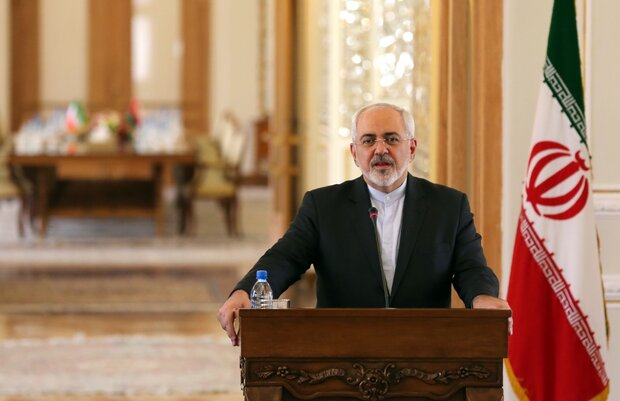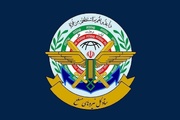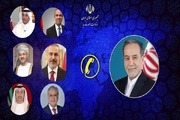In an interview with Sputnik News on Thursday, Zarif noted that the US must compensate for the damage it caused to the Iranian nation, as well as for measures taken by Washington to undermine the nuclear deal, Sputnik News reported.
"The return of the United States to the nuclear deal is the first step that they should take. For this return, [the US] must compensate for the damage it caused to the Iranian nation, as well as for measures taken by the US to undermine the nuclear deal and promise to not do it again," Zarif added.
Zarif added that every country has a right to the peaceful use of nuclear energy, but the West has double standards about different states' nuclear programs.
"We believe that all of the countries have the right for the peaceful use of the nuclear energy, including [uranium] enrichment, and this right must be exercised in a transparent manner in line with regulations issued by the IAEA. The Western countries have double standards in this regard. If a similar control, which is carried out toward Iran, is introduced on other countries that want to have an advanced nuclear program, the international community will be in peace," Zarif said.
Relations between the US and Iran have soured considerably due to President Donald Trump’s campaign of so-called maximum pressure, stipulating tough sanctions against the Islamic Republic, launched after the US unilaterally withdrew from the Iranian nuclear deal.
In 2015, Iran signed the JCPOA with China, France, Germany, Russia, the United Kingdom, the United States, and the European Union. According to the agreement, Tehran had to scale back its nuclear program and severely downgrade its uranium reserves in exchange for sanctions relief, including lifting the arms embargo five years after the deal was adopted.
On prisoner exchange
Iran is ready to exchange prisoners with dual citizenship who are being held in the country for Iranian prisoners held in the US, Iranian Foreign Minister Mohammad Javad Zarif said on Thursday. The minister noted that at present Iran has no American prisoners with single citizenship.
Zarif made clear that Iran was not yet ready for direct negotiations with the US government and would be using other governments, such as the Swiss, "that wish to play a positive role in this regard", as an intermediary.
Iran said it was ready for an unconditional prisoner swap with the US this May amid the COVID-19 pandemic. Back then, Tehran stated that there was no need for a third country to mediate between Iran and the US for the prisoner exchange.
On Bahrain, UAE Normalization of Ties with Zionist Regime
Bahrain and the United Arab Emirates backstabbed Palestine by reaching the normalization deals with the Zionist Regime, but the ceremony in the White House was not a big issue anyway, since The Zionist Regime and the Arab nations have maintained contacts during up to 20 years, Zarif believes.
"What happened in the White House was not a major development, but rather an opportunity to photograph and uncover the relations that have existed for 15 or 20 years between the Arab countries along the southern coast of the Persian Gulf and the Zionist regime. These relations indicate that the slogans voiced by these countries in support of the Palestinian people are untrue, but are in actual fact a stab in the back for the Palestinian cause," Zarif said.
The Iranian foreign minister expressed the belief that the Zionist Regime's relations with Bahrain and the UAE would "surely hurt peace in the region and the Middle East", as they encouraged the regime to "oppress the aspirations and rights of the Palestinian people."
"For this reason, we have disputed these relations considering that they are at the expense of the region and its peoples," Zarif added.
At the same time, the foreign minister noted that Iran was ready to improve relations with the neighbors.
"Iran’s relations with neighboring countries are based on mutual respect, and the policy of the Islamic Republic is built on neighboring policy, and so long as these countries wish to build good relations with Iran, these relations will remain ongoing. However, unfortunately, there are some states in the southern section of the Persian Gulf, such as the UAE, KSA [Kingdom of Saudi Arabia], and Bahrain, who do not wish to establish durable relations with Iran," Zarif explained.
According to the foreign minister, should the Persian Gulf states at any time be ready to build good relations with Iran, Tehran will wish for that as well.
"Their relations with the Zionist Regime are certainly not a strong point in our relations, but they will not impede our relations with them either," Zarif concluded.
Earlier this month, the United Arab Emirates and Bahrain became the third and the fourth Arab countries, respectively, after Egypt and Jordan to recognize the Zionist Regime.
FA/PR

























Your Comment